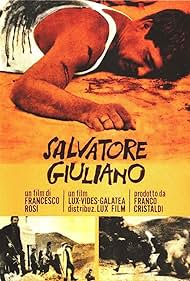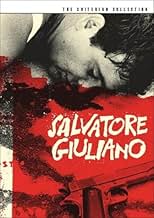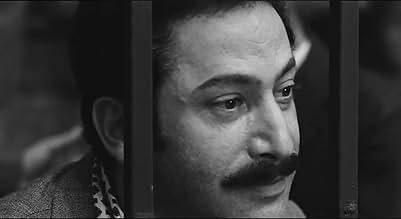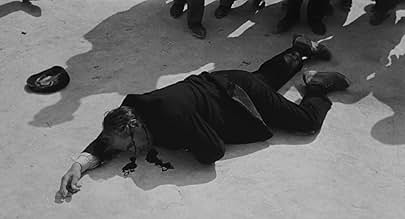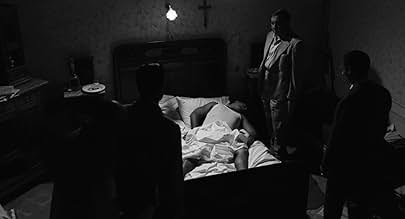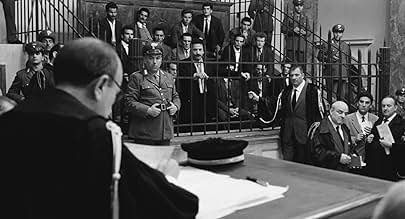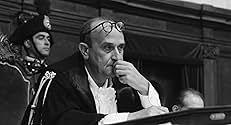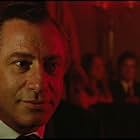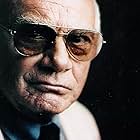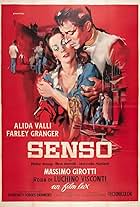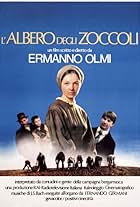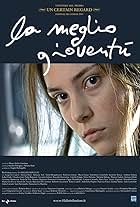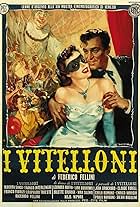IMDb रेटिंग
7.3/10
4.8 हज़ार
आपकी रेटिंग
अपनी भाषा में प्लॉट जोड़ेंThe unclear and complicated twists between governal powers, independentist party and Mafia in the Sicily of the '40s culminate with the death of Salvatore Giuliano.The unclear and complicated twists between governal powers, independentist party and Mafia in the Sicily of the '40s culminate with the death of Salvatore Giuliano.The unclear and complicated twists between governal powers, independentist party and Mafia in the Sicily of the '40s culminate with the death of Salvatore Giuliano.
- पुरस्कार
- 6 जीत और कुल 4 नामांकन
Frederico Zardi
- Pisciotta's Defense Counsel
- (बिना क्रेडिट के)
Pippo Agusta
- Minor Role
- (बिना क्रेडिट के)
Sennuccio Benelli
- Reporter
- (बिना क्रेडिट के)
Giuseppe Calandra
- Minor Official
- (बिना क्रेडिट के)
Pietro Cammarata
- Salvatore Giuliano
- (बिना क्रेडिट के)
Max Cartier
- Francesco
- (बिना क्रेडिट के)
Nando Cicero
- Bandit
- (बिना क्रेडिट के)
Pietro Franzone
- Seperatist
- (बिना क्रेडिट के)
Giovanni Gallina
- Bit Part
- (बिना क्रेडिट के)
Vincenzo Norvese
- Bit Part
- (बिना क्रेडिट के)
Carmelo Oliviero
- Don Nitto Minasola
- (बिना क्रेडिट के)
Renato Pinciroli
- Pinciroli
- (बिना क्रेडिट के)
Francesco Rosi
- Narrator
- (वॉइस)
- (बिना क्रेडिट के)
Giuseppe Teti
- Priest of Montelepre
- (बिना क्रेडिट के)
Cosimo Torino
- Frank Mannino
- (बिना क्रेडिट के)
कहानी
क्या आपको पता है
- ट्रिवियाMartin Scorsese credits this film as being one of his many inspirational sources for the look and style of his Taxi Driver (1976).
- गूफ़When his mother comes to view and identify his corpse, Salvatore's stomach clearly moves as the actor struggles to control his breathing.
- कनेक्शनEdited into Il sasso in bocca (1970)
फीचर्ड रिव्यू
Filmed in the actual Siciilian locations, this film is a fair attempt to strip away the myth surrounding bandit-cum-revolutionary Giuliano. In fact, he doesn't appear except as a gunned-down corpse at the beginning. The film winds back to unravel the events leading to his death, and forwards to its consequence. This is a clever method of achieving objectivity while at the same time subtly emphasising the man's elusive and mysterious qualities. To show Giuliano would have either been either hagiography or iconoclasm. The film rose above that and broadened its inquiry into the wider social and political context, effectively belittling him as the puppet of various forces jostling for position in Sicily after the war: bandits, police, local aristocracy, the Italian government, communists, and the Mafia.
This sets quite a challenge for itself, partly because of the vacuum at its centre, partly because of the obscurity and complexity of the real events. We are delivered to a chaotic courtroom to try to piece it together. The film finally latches onto Giuliano's lieutenant the only one who seems to know something of what is going on - but even he is silenced. It's all the more disturbing for the confusion.
Rosi is one of the best directors of crowds scenes and he gives raucous energy to any gathering of men, especially in the courtroom. He induces a kind of group hysteria in his actors; they are totally unaware of the camera and the result is an almost disturbing hyper-real feel (real crowds are dull in comparison) it's really something to appreciate. To get into this film, you need to invest something in the passions of the various parties involved - if not sympathise with them, then at least understand them. Without this, the danger is that it all boils down to so much petty bickering. The same might be said of the Godfather, which clearly owes a huge debt to Rosi's style.
Influential then, somewhat brave, with some fine directorial moments, and an interesting history lesson. Hard to actually like, but hard not to admire.
This sets quite a challenge for itself, partly because of the vacuum at its centre, partly because of the obscurity and complexity of the real events. We are delivered to a chaotic courtroom to try to piece it together. The film finally latches onto Giuliano's lieutenant the only one who seems to know something of what is going on - but even he is silenced. It's all the more disturbing for the confusion.
Rosi is one of the best directors of crowds scenes and he gives raucous energy to any gathering of men, especially in the courtroom. He induces a kind of group hysteria in his actors; they are totally unaware of the camera and the result is an almost disturbing hyper-real feel (real crowds are dull in comparison) it's really something to appreciate. To get into this film, you need to invest something in the passions of the various parties involved - if not sympathise with them, then at least understand them. Without this, the danger is that it all boils down to so much petty bickering. The same might be said of the Godfather, which clearly owes a huge debt to Rosi's style.
Influential then, somewhat brave, with some fine directorial moments, and an interesting history lesson. Hard to actually like, but hard not to admire.
- federovsky
- 20 दिस॰ 2008
- परमालिंक
टॉप पसंद
रेटिंग देने के लिए साइन-इन करें और वैयक्तिकृत सुझावों के लिए वॉचलिस्ट करें
- How long is Salvatore Giuliano?Alexa द्वारा संचालित
विवरण
- रिलीज़ की तारीख़
- कंट्री ऑफ़ ओरिजिन
- भाषा
- इस रूप में भी जाना जाता है
- Wer erschoß Salvatore G.?
- फ़िल्माने की जगहें
- 98 Via Serafino Mannone, Castelvetrano, Trapani, Sicily, इटली(Giuliano's body)
- उत्पादन कंपनियां
- IMDbPro पर और कंपनी क्रेडिट देखें
- चलने की अवधि2 घंटे 3 मिनट
- रंग
- ध्वनि मिश्रण
- पक्ष अनुपात
- 1.85 : 1
इस पेज में योगदान दें
किसी बदलाव का सुझाव दें या अनुपलब्ध कॉन्टेंट जोड़ें

